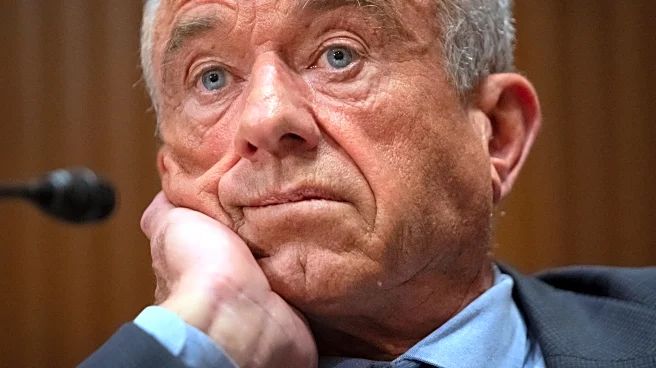What's Happening?
Napheesa Collier, a prominent player in the WNBA, has publicly criticized WNBA Commissioner Cathy Engelbert for her handling of player compensation and referee performance issues. Collier expressed dissatisfaction with Engelbert's comments regarding the financial earnings of players like Caitlin Clark, Angel Reese, and Paige Bueckers, who she claims are generating significant revenue for the league but are underpaid during their initial years. Collier reported that Engelbert suggested players should be grateful for the media rights deal she secured, which Collier interpreted as dismissive of the players' contributions. Engelbert, in response, denied making such comments and emphasized the inaccuracies in the reports, stating her admiration for Clark's impact on the league. The controversy has led to Collier canceling a planned meeting with Engelbert, indicating a strained relationship between the player and the commissioner.
Why It's Important?
This dispute highlights ongoing concerns about player compensation and league management within the WNBA. The league has faced criticism for not adequately compensating its players despite their role in driving revenue and increasing the league's popularity. Collier's comments bring attention to the broader issue of gender pay disparity in sports, where female athletes often earn significantly less than their male counterparts. The public disagreement between Collier and Engelbert could impact the league's reputation and its ability to attract and retain top talent. It also underscores the need for transparent and effective communication between league officials and players to address these critical issues.
What's Next?
The cancellation of the meeting between Collier and Engelbert suggests that tensions may continue to escalate. The WNBA may need to address these concerns more directly to prevent further fallout. Stakeholders, including players, sponsors, and fans, will likely watch closely to see how the league navigates this situation. There may be calls for reforms in player compensation structures and improvements in referee performance standards. The league's response could influence its future negotiations with players and impact its public image.
Beyond the Headlines
The controversy may prompt discussions about the ethical responsibilities of sports leagues to their players, particularly in terms of fair compensation and respect for their contributions. It could also lead to broader conversations about the role of media rights deals in shaping the financial landscape of women's sports. The situation may encourage other players to speak out about their experiences, potentially leading to a movement for change within the league.











